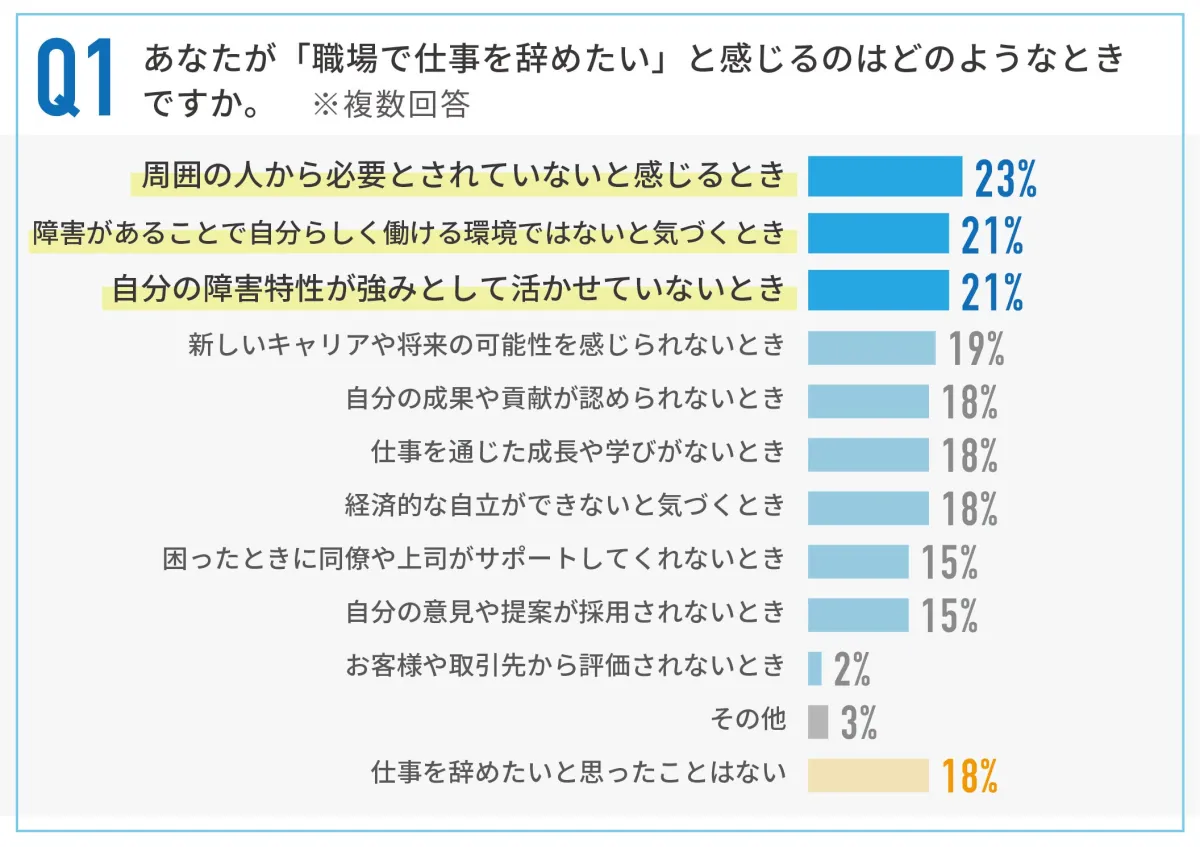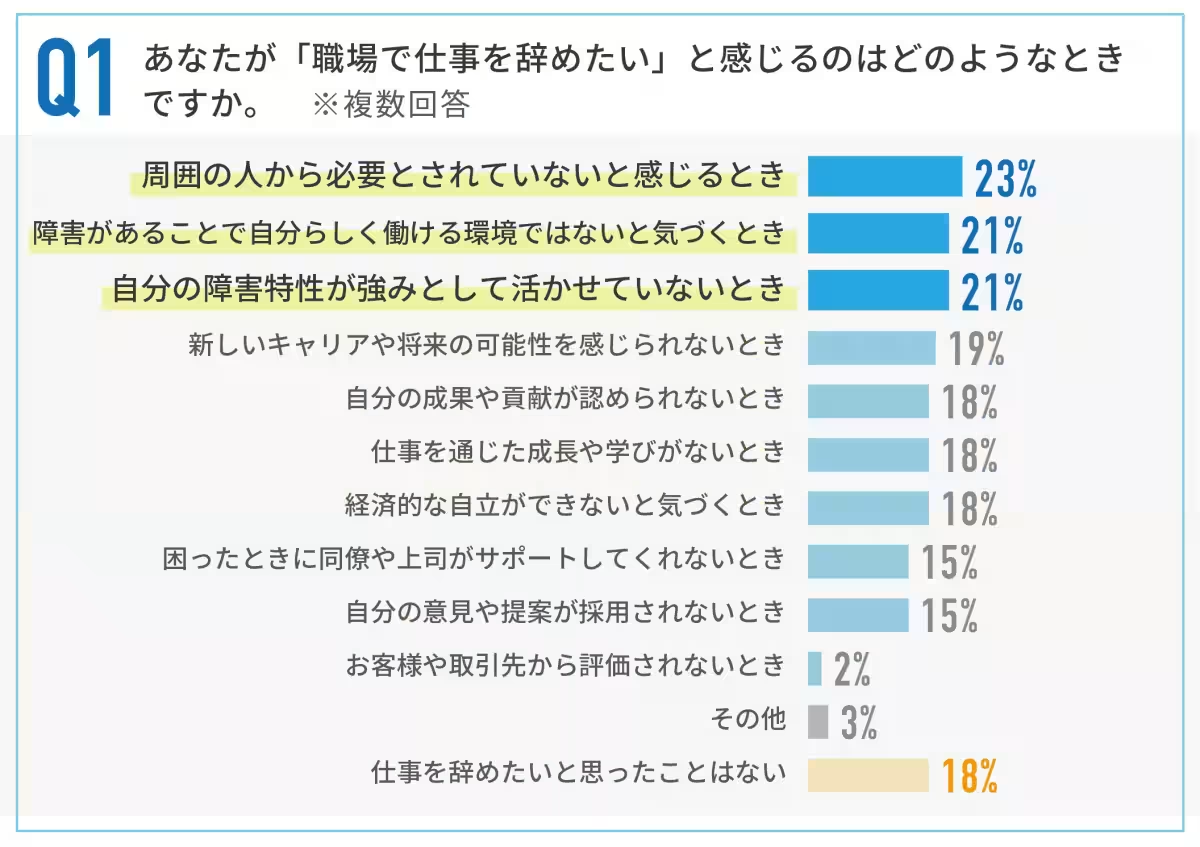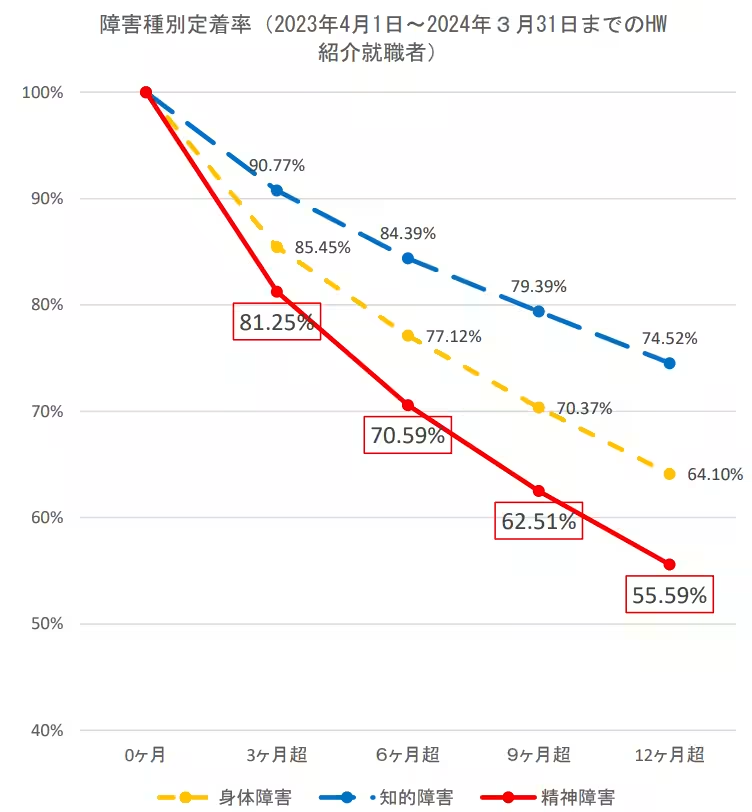

Significant Percentage of Disabled Workers Contemplate Quitting Due to Feeling Unneeded
Understanding the Challenges of Disabled Workers
Overview
In a recent survey conducted by Start Line, a company dedicated to supporting the employment of individuals with disabilities, it was found that more than 80% of disabled employees have experienced feelings of wanting to quit their jobs. The survey targeted those who have worked in private companies for over three years, aiming to shed light on workplace experiences and challenges faced by disabled individuals.
Key Findings
1. High Percentage Wanting to Quit: Of those surveyed, 82% indicated they had felt like quitting at some point, a stark contrast to the 18% who reported never having such feelings. This data highlights a critical issue in workplace inclusivity and support.
2. Primary Reason: The top reason for wanting to leave a job was the sensation of being unnecessary, cited by 23% of respondents. Other significant factors included recognizing that their disabilities hindered their ability to work authentically in their environment, and not being able to leverage their unique strengths fully.
3. Positive Aspects of Work: Interestingly, the most common reason for feeling positive about their employment was when their contributions were recognized. 35% of participants indicated that acknowledgment of their achievements played a crucial role in their job satisfaction. Other factors contributing to a good work experience included the perception of meaningful work despite their disabilities (30%) and feeling needed by their colleagues (27%).
Insights from an Expert
To delve deeper into the implications of these findings, we consulted Eiji Yoshida, a disability employment evangelist at Start Line. With extensive experience working with over 500 companies employing more than 5,000 disabled individuals, Yoshida emphasizes the critical nature of creating value in the workplace. He explains that when employment practices prioritize mere compliance with legal quotas for disabled hiring, the real challenges and needs of these employees can often be overlooked. This approach may lead to disengagement and early job turnover.
The Importance of Value Creation in Disability Employment
Yoshida highlights that the driving philosophy behind disability employment should be centered on value creation rather than just meeting legal requirements. Employees need to feel that their contributions matter, both for their personal fulfillment and for the company’s success.
The Need for Balance
While understanding that legal compliance is necessary, the survey indicates a pressing requirement to balance this with creating genuine opportunities for disabled workers. When companies adopt a more holistic approach to employment, taking into consideration their unique capabilities and fostering environments where they can thrive, both employee retention and satisfaction are likely to improve.
Conclusion
The results of this survey present a strong case for companies to reevaluate their disability employment strategies. Recognizing the potential and contributions of disabled individuals not only enhances workplace satisfaction but also serves the broader goals of corporate responsibility and social inclusivity. Companies that embrace this philosophy will not only adhere to regulations but create a thriving work culture where every individual can feel valued and productive.
This survey is a vital stepping stone in promoting a society where everyone, regardless of their abilities, can contribute meaningfully, further emphasizing the necessity for a well-rounded approach to diversity in the workplace.






Topics People & Culture)










【About Using Articles】
You can freely use the title and article content by linking to the page where the article is posted.
※ Images cannot be used.
【About Links】
Links are free to use.